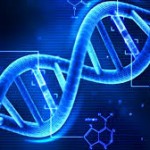Over the past twenty years, DNA evidence has become inextricably linked to crime scene investigation and criminal justice. Almost every crime television show has every crime solved by a quick DNA comparison within minutes. You may have heard of the recent high profile case going on in Fairfax County that was entirely built on DNA evidence.
The way DNA evidence is portrayed in the news and T.V. shows could not be further from the truth. In Virginia, DNA evidence is used in very few cases, and takes months to test and report. DNA evidence in Virginia that is collected by local law enforcement officers is sent to the Department of Forensic Science. These are some myths dealing with DNA evidence in Virginia:
- Myth: DNA evidence can be tested quickly – DNA evidence requires several rounds of testing that can take days and weeks to complete. Once a biological specimen has been isolated, there are five separate processes that must occur in order to make a DNA comparison. See DFS Training Manual 211-D400. http://www.dfs.virginia.gov/wp-content/uploads/2014/09/211-D400-Data-Bank-PowerPlex-16-Procedures-Manual.pdf. This must be done with both the known and unknown sample. This process takes a long time, and must be balanced with the caseload of the forensic examiner.
- Myth: DNA evidence produces a “match” – DNA comparisons do not result in 100% matches. In reality, DNA results are reported as a statistic. These statistics show the probability that another person has the same DNA as the known sample. For example, the closest match will be reported as the probability of another person having the same DNA profile is 1 in 6.5 billion (the approximate population of the world). The weaker the DNA sample, the weaker the probability will be. http://www.dfs.virginia.gov/laboratory-forensic-services/biology/faqs/
- Myth: DNA evidence is available in every case – Virginia has a centralized laboratory system where only the statewide Department of Forensic Science tests biological evidence. As a result, there is a finite amount of examiners to test evidence. Therefore, only the biggest cases, such as murder, rape, robbery etc. will be tested. For smaller cases, the Commonwealth Attorney is required to request by letter a DNA test.
- Myth: DNA evidence cannot be challenged in Court – Because DNA evidence is reported in statistics, and is ultimately up to interpretation by an expert, DNA evidence can be challenged in Court. Avenues of challenge include the testing method, collection method, interpretation, and statistical analysis.
- Myth: The Commonwealth has a DNA database of all citizens – The Commonwealth only maintains a database of the DNA of all persons who have been convicted of a felony and certain sexual assault related misdemeanors. Starting July 1, 2015, the number of misdemeanors that would require collection is expanding to include some non-sexual assault related misdemeanors. 19.2-310.2 of the Code of Virginia. Unless you have been convicted of one of these crimes, the state does not have your DNA on file.
If you have been charged with a crime that involves the use of DNA evidence, contact the criminal lawyers at Winslow & McCurry, PLLC at 804-423-1382.
